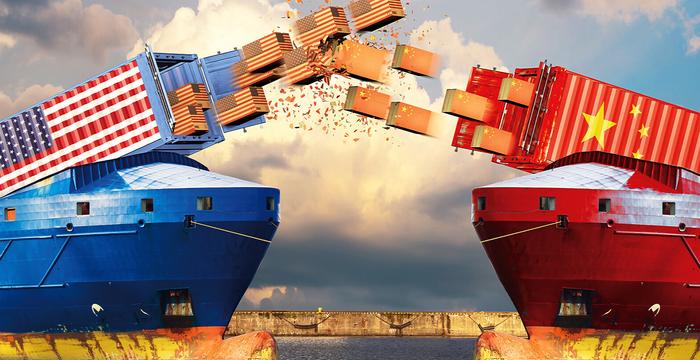Most of the unintended consequences of Trump’s trade war and their effect on California wineries are not being discussed and are largely invisible. Dive deeper with Greg Martellotto of Martellotto Winery.

Ask small business owner Greg Martellotto his opinion of Trump tariffs, and he’ll talk about the unintended consequences that are not being discussed and are largely invisible.
“They’re trying to punish the Chinese for something that clearly has nothing to do with (glass.) And who’s paying the bill? Me! And American small businesses. No one’s talking about it, no one that I’m aware of,” says Greg. “These things don’t seem to be well thought out. It doesn’t make sense.”
Here is a bit of background of the U.S. - China tariff situation:
The California wine industry, already dealing with tight domestic glass supply amid rising costs, shifted sourcing to China. Today most California wineries use bottles made in China. But now new tariffs on Chinese glass make managing costs and margins that much more challenging.
Greg’s Santa Barbara County winery, Martellotto Winery, produces Martellotto wine and private label wine. For a recent private label bottling, he absorbed a 21% tariff on Chinese glass, a direct impact on his bottom line.
“The Chinese glass that we use for an inexpensive private bottling now has a 21% tariff on it, as a result of Trump’s tariffs. When you’re dealing with inexpensive wines, this is a real number, because there’s not much margin.”
Finding alternative sources for glass can be a challenge due to timing and costs, but many find themselves searching. Shifting supply takes time, and many wineries, especially smaller ones, might not have that luxury.
For example, when Greg tried to buy domestic glass, the lead time was 3 months. U.S. suppliers were either sold out and backed-up with orders. He had to turn to buying imported glass from China in order to keep his business moving and bottle the wine.
The unintended consequences of tariff wars affect the wine industries in both the U.S., and China, on both sides of the supply chain.
When Trump increased tariffs on Chinese imports to 25%, China raised rates on a range of U.S. imports, including California wine.
China then levied rates of up to 93% on California wine, resulting in a dramatic reduction in the sale of California wines to China.
China can source wine from other countries such as Australia, New Zealand, and South America, which have much lower rates and free trade agreements in place.
A small-businessman like Greg might seem to have an advantage because not only does he own a winery, he has an import/wholesale wine business, and a direct-to-consumer wine business. But the tariff wars impact each of these businesses in different ways.
No one in the wine trade is exempt from some impact and even if the tariffs are short-lived, the consequences might not be.
Greg asks of the politicians in Washington D.C.:
All excellent questions that remain unanswered.
“If the politicians don’t consider the impact on small businesses of these decisions, more small businesses will suffer, and many will go out of business.”
About Martellotto Winery
Set deep in the heart of Santa Barbara wine country, Martellotto Winery makes handcrafted, beautiful and exciting wines using selected grapes from across California’s Central Coast. American Viticultural Areas (AVAs) include Happy Canyon AVA, Sta. Rita Hills AVA, Santa Ynez Valley AVA, and Santa Maria Valley AVA.
Owner and winemaker, Greg Martellotto, specializes in Bordeaux varietals. Martellotto Winery is one of the few wineries producing single varietal wines of all five of the noble Bordeaux grapes: Merlot, Cabernet Sauvignon, Cabernet Franc, Petit Verdot, and Malbec.
Contact:
Greg Martellotto, Owner
Martellotto Winery
